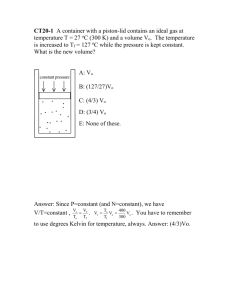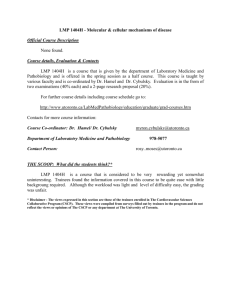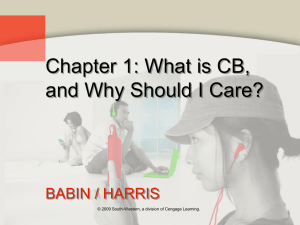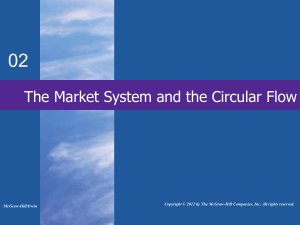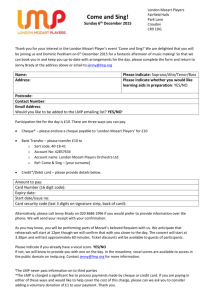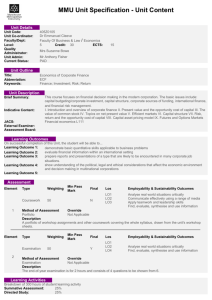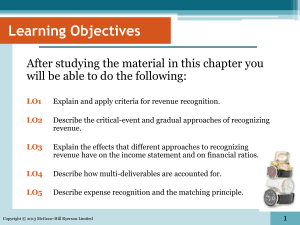Untitled
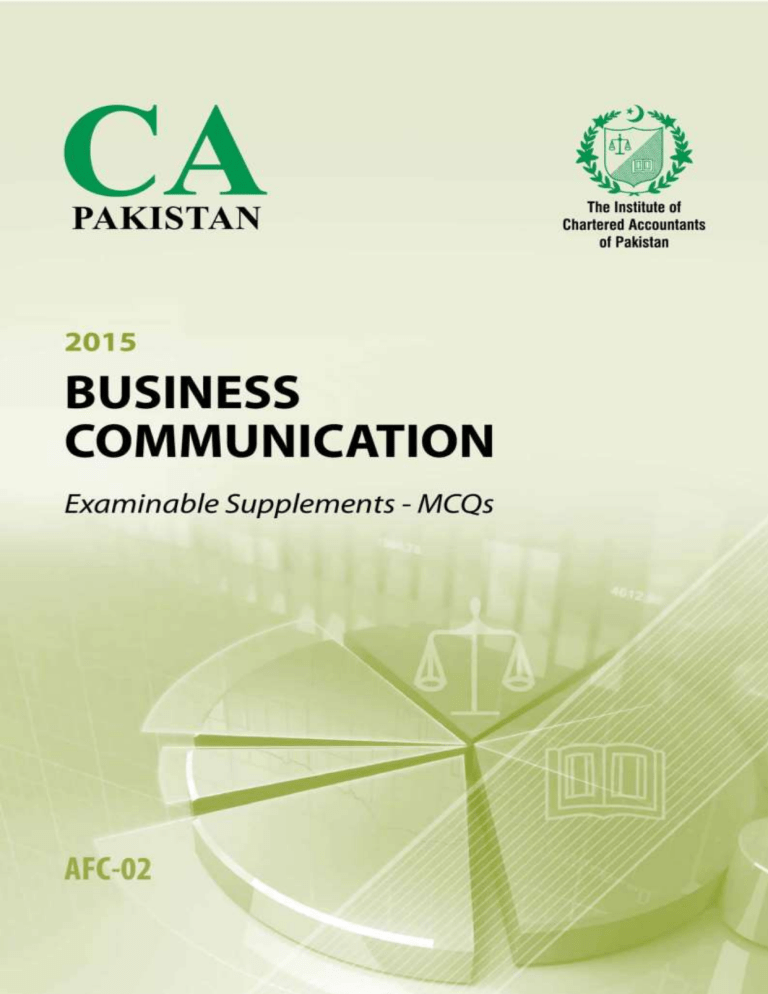
LO2.3.1:
LO2.3.2:
LO2.4.1:
LO2.4.2:
LO2.5.1:
LO2.5.2:
LO2.5.3:
LO2.5.4:
LO2.5.5:
LO1.2.3:
LO1.2.4:
LO1.2.5:
LO1.2.6:
LO2.1.1:
LO2.1.2:
LO2.2.1:
LO2.2.2:
LO2.2.3:
LO2.2.4:
LO2.2.5:
LO2.2.6:
LO2.6.1:
LO2.7.7:
LO2.7.8:
LO3.2.1
LO3.2.2:
LEARNING OUTCOMES
Identify the information needs of the organization and its sources, levels, and usefulness for effective communication.
Explain with simple examples the barriers to effective communication
Describe different methods of communication and also state their appropriate medium.
Classify different types of communication networks and describe their influence on the communication process within an organization.
Develop an awareness and appreciation of the importance of intrapersonal communication.
Identify the basic aspects of intrapersonal communication including self- concept, perception and expectation.
Identify the axioms of interpersonal communication
Specify the purposes of interpersonal communication.
Determine the role of stereotypes in the communication process.
Identify the role of communication conflict in intercultural relationships.
Explain the key ways to improve interpersonal skills.
Identify the elements and traits of ethics in interpersonal communication.
Explain the difference between creative thinking and critical thinking
Assess the effect of critical thinking over communication
Identify forms of non-verbal communication including facial expressions, posture, gestures, eye contact, voice and touch.
Explain the uses of non-verbal messages.
Contrast between oral and written communication.
Explain and account for the basic forms of oral communication including; face to face communications, interviews, telephone conversations, grapevine, negotiations, meetings, lecture/speech.
Contrast between speaking and listening skills.
Develop a personal, constructive approach to dealing with conflict situations through speech communication strategies of conflict resolution.
Explain the principles of preparing and delivering an effective public speech
Assess the role of visual communication in simplifying and comparing information and illustrating trends and ideas.
Differentiate between different types of reports.
Explain the contents of different types of reports.
Explain the main features and practical use of social networking forums, blogs, podcasting, discussion boards, messaging, video conferencing and email.
Discuss the benefits and limitations of various types of electronic communication.
Ques.
1
6
9
16
18
20
27
29
31
Ans.
34
39
42
49
51
53
59
61
63
SYLLABUS REFERENCE
A2 - Communication process
LEARNING OUTCOMES
LO1.2.3: Identify the information needs of the organization and its sources, levels, and usefulness for effective communication.
LO1.2.4:
LO1.2.5:
LO1.2.6:
Explain with simple examples the barriers to effective communication
Describe different methods of communication and also state their appropriate medium.
Classify different types of communication networks and describe their influence on the communication process within an organization.
Multiple Choice Questions - Business Communication Page 1
LO1.2.3: Identify the information needs of the organization and its sources, levels, and usefulness for effective communication.
1.
Pointer Limited manufactures fine quality stationery supplies. The management of the company wants to assess their market share to plan a 5 year sales strategy and have asked the marketing director, Mr. Talha, for information in this regard. Mr. Talha prepares a detailed report based on company’s sales of last quarter, the sales of competitors and sends it to the board of directors.
For preparation of report, Mr. Talha used internet, his company’s sales records and an online marketing survey. You’re required to identify the following from the above situation. a.
Source(s) of information used for the report b.
Level of information
______________________
______________________
2.
Information in any organization is considered useful if it meets the _________ criteria: a.
It is submitted on a timely basis b.
It is relevant to the user requirements c.
It is targeted towards effective and efficient decision making d.
All of the above
3.
Following is a list of activities performed at Delta Limited. These activities are carried out in various departments based on the information obtained from respective areas. Also given is the intended purpose of each activity. Match the activity with the most relevant purpose.
Activity a) Calculation of accrued interest on bank loan
Purpose i) Decision making ii) Performance measurement b) Weighing the pros and cons to launch a new product in the market c) Checking how many employees were late to reach office iii) Control iv) Planning d) Installing a bar code scanner at point of sales to calculate inventory requirement for next quarter v) Transaction recording e) Assessment of employees performance over the year to announce annual bonuses
Multiple Choice Questions - Business Communication Page 2
LO1.2.4: Explain with simple examples the barriers to effective communication
1.
Mr. Raza is the finance manager at Giga Hertz Limited. He is on his annual leaves from work and is currently in Thailand. Last night he received a call from his company. It was Ms. Tahira from his office asking if Mr. Raza could guide her about the budgeted profit and loss account. At that time, Mr. Raza was at a musical concert so he was not able to listen to Ms. Tahira’s call properly due to high music. Also, the mobile signal was weak. As a result, Mr. Raza was unable to advise
Ms. Tahira.
You’re required to identify the universals of communication in the above situation and also identify the barriers which caused ineffectiveness of communication.
2.
Jargon is best defined as __________. a.
an organization’s informal communication network b.
a report submitted via internet to interested users c.
expressions that are used by a particular profession are difficult for others to understand d.
none of the above
Multiple Choice Questions - Business Communication Page 3
LO1.2.5: Describe different methods of communication and also state their appropriate medium.
1.
For a message which requires immediate feedback from the receiver, the sender should use
________ method. a.
written b.
oral c.
any of the above d.
none of the above
2.
Below is a list of situations. You’re required to identify the method of communication employed in each of the situation along with the medium of communication.
S. No Situation
Method of
Communication
Medium of
Communication
1. Meeting of board of directors of Galaxy
Limited using Skype.
2. Business proposal submitted by Highfly
Constructions to Sindh Government for construction of Karachi-Hyderabad motorway
3. Email from Zain to his friend asking about course outline of business communication
4. SMS sent by Fast Courier Service notifying customers of an increase in tariff
5. Faris asking for exam registration procedure at ICAP facilitation centre
6. Map of Expo Centre displayed at billboards across the city
Multiple Choice Questions - Business Communication Page 4
LO1.2.6: Classify different types of communication networks and describe their influence on the communication process within an organization.
1. Grapevine can be best defined as __________. a.
encouraging staff participation in organizational decision making process b.
making use of inter office memorandums for information circulation c.
an organization’s informal communication network d.
all of the above
2. Rumors in organization can cause some serious harm. However, the negative consequences of such rumors can be reduced by _________. a. discouraging chit chats between employees during lunch time b. maintaining open communication channels within organization c. encouraging employees to be open with concerns, suggestions, and ideas d. both b and c
3. Upward communication flows to a higher level in the group or organization. Identify the most likely goal which is likely to be accomplished via upward communication. a. to provide feedback to bosses b. inform the seniors of progress towards monthly targets c. communication of problems to senior management d. all of the above
4. Mr. Mukhtar is the CEO of Alpha Technologies Limited. He sent an email to Ms. Sarah, the finance manager of the company requesting the profit and loss figures for the quarter ended
30 September 2014. This communication cycle can be classified as ____________ in the organizational context. a. downward communication b. upward communication c. intrapersonal communication d. none of the above
5. Lateral communication takes place among __________ and is said to facilitate _________. a. customers of a retailer ; customer services b. competitors of a manufacturing concern ; competition c. suppliers of an industrial concern ; supply chain management d. members of the same work group ; coordination
Multiple Choice Questions - Business Communication Page 5
SYLLABUS REFERENCE
B1 - Nature of Intra-personal communication
LEARNING OUTCOMES
LO2.1.1: Develop an awareness and appreciation of the importance of intrapersonal communication.
LO2.1.2: Identify the basic aspects of intrapersonal communication including self- concept, perception and expectation.
Multiple Choice Questions - Business Communication Page 6
LO2.1.1: Develop an awareness and appreciation of the importance of intrapersonal communication.
1.
Which of the following activities fall under the ambit of communication? a.
Listening and reading b.
Reading and writing c.
Writing and speaking d.
Writing, reading, speaking and listening
2.
According to the results of a research study, nearly _____ percent of working hours in an organization are dedicated to communication. a.
70 b.
60 c.
50 d.
80
3.
Ms. Javeria is the marketing manager at Hyper Shopping Mall. She decides to address the sales force of the mall to inform them that from the next quarter, they will be given an additional 3 percent commission beside salaries. The amount of commission will be based on the sales made by each individual. She is of the opinion that doing so will improve the sales of the mall. In this situation, communication from Ms. Javeria is being used as a(n) ___________ tool. a. interpersonal b. motivational c. intrapersonal d. external
Hint: The four major functions which communication serves in an organization are control, motivation, emotional expression, and information.
Multiple Choice Questions - Business Communication Page 7
LO2.1.2
: Identify the basic aspects of intrapersonal communication including self-concept, perception and expectation.
1.
Selective perception takes place in a communication cycle when the receiver in the communication process selectively see and hear based on ________ experience, background, and other personal characteristics. a.
receiver’s own b.
sender’s c.
none of the above d.
any of the above
2.
Mr. Faiz is the HR manager at Gala Corporations. He recently interviewed few candidates for the post of manager administration. Out of 5 candidates interviewed, 2 were females. However, Mr.
Faiz is of the opinion that the females put their families ahead of their careers and hence he is a bit skeptical to hire any female. His thoughts are likely the result of his _______ about females. a.
inference b.
perception c.
analysis d.
working experience
3.
The situation as described in the above scenario is also a classic example of __________. a.
ethnocentrism b.
stereotyping c.
contextual analysis d.
contrast evaluation
Multiple Choice Questions - Business Communication Page 8
SYLLABUS REFERENCE
B2 – Nature of Interpersonal communication
LEARNING OUTCOMES
LO2.2.1:
LO2.2.2:
LO2.2.3:
LO2.2.4:
LO2.2.5:
LO2.2.6:
Identify the axioms of interpersonal communication
Specify the purposes of interpersonal communication.
Determine the role of stereotypes in the communication process.
Identify the role of communication conflict in intercultural relationships.
Explain the key ways to improve interpersonal skills.
Identify the elements and traits of ethics in interpersonal communication.
Multiple Choice Questions - Business Communication Page 9
LO2.2.1: Identify the axioms of interpersonal communication
1.
Mr. Zain was asked by Mr. Haris, his boss to send him the company’s profit and loss account for the month ended 31 May 2015. Mr. Haris has to send the same to the Board of Directors.
Accidentally, Mr. Zain emailed him the profit and loss account for the month ended 31 May
2014. In a hurry, Mr. Haris send the same to the Board without rechecking. Upon realization of the mistake, we can see that the situation entails the axiom that __________________. a.
communication is not essential b.
communication is a series of punctuated events c.
communication is inevitable d.
communication is irreversible
2.
The communication between groups of friends is least likely to be marked with courteous pleasantries and etiquette. This is because of the fact that the relationship between friends is a
__________ relationship. a.
complex b.
supplementary c.
complimentary d.
symmetrical
3.
Mega Electronics is a Japan based company. They are planning to open a branch office in UK.
The management of the company has decided to arrange a workshop on cultural diversity for the employees as the management realizes that for its UK office tobe successful, it is essential to understand UK business culture. This situation describes the interpersonal axiom that
___________. a.
cultural diversity is crucial for a business success b.
intercultural communication in Japan is over rated c.
communication is a process of adjustment d.
UK companies are more prone to intercultural diversity
Multiple Choice Questions - Business Communication Page 10
LO2.2.2: Specify the purposes of interpersonal communication.
1.
ABC Corporation is a textile concern. Recently in the meeting of marketing department, it was decided to start a mega sale for the customers. The head of the department wants to make maximum use of effective advertisements. Advertisement is a form of _________ . a.
external communication b.
performance measure c.
both a and b d.
none of the above
2.
Advertisement is a form of external communication. Below is a list of modes of external communication available to an organization. Match the modes with their most likely purpose.
Mode of External Communication a. Press release b. Tender notice c. Pamphlets d. Annual report
Purpose i.
To ask for proposals of interested parties for a construction work ii.
To inform shareholders of company’s performance iii.
To notify general public about a change of company’s address iv.
Economical advertising about a low end product
Multiple Choice Questions - Business Communication Page 11
LO2.2.3: Determine the role of stereotypes in the communication process.
1.
A particular organization in Middle East was reported not to hire female staff. This practice is a classic example of __________. a. promoting cultural diversity of employees b. male prototyping c. Gender biasedness d. All of the above
2.
Organizations can educate their employees to keep stereotyping at bay by organizing
__________. a.
cultural shows b.
gender training programs c.
profiling d.
diversity training programs
Multiple Choice Questions - Business Communication Page 12
LO2.2.4: Identify the role of communication conflict in intercultural relationships.
1.
Understanding and improving intercultural sensitivity is essential in today's corporate environment because _________________. a. the workforce is getting more diverse by the day b. the world is turning into a shrunken global village c. advancement in communication technology is decreasing physical distances d. all of the above
2.
Eye contact is a major form of non-verbal communication. In different cultures, maintain eye contact signifies different meanings. In Muslim world, maintaining eye contact when speaking to elders is considered __________. a. rude b. truthful c. honest d. none of the above
3. Communication breakdown in a multicultural organizational setting is a result of ____________. a. stylistic issues b. lack of knowledge about English language c. grammatical issues d. misunderstandings in culture
4.
Successful intercultural communication can be ensured by ______________. a. asking lot of questions about cultures b. be open towards other cultures c. understanding that differences exist between cultures d. all of the above
Multiple Choice Questions - Business Communication Page 13
LO2.2.5: Explain the key ways to improve interpersonal skills.
1.
For a manager to succeed, technical skills are necessary but not sufficient. Today managers are required to have ___________skills in addition to technical skills to excel at their jobs. a. interpersonal skills b. people skills c. computer skills d. both a and b
2.
Organizations today are becoming increasingly aware of the importance of interpersonal skills.
This results in their workforce being _______________. a. more culturally diverse b. reduced due to office automation c. more productive and motivated d. all of the above
3.
Several researches by management gurus have revealed that _____________ is the major reason for which the employees like their jobs. a. high salary b. fringe benefits c. supportiveness of the work environment d. none of the above
Multiple Choice Questions - Business Communication Page 14
LO2.2.6: Identify the elements and traits of ethics in interpersonal communication.
1.
Ethical communication in an organization becomes extremely challenging for managers due to
____________. a.
cultural diversity of employees b.
different religious perspectives of employees c.
varying family values of employees d.
all of the above
2.
A company decides to launch a new detergent. The TV advertisement which was made for the publicity of the product contains claims to remove grease stains. However, the composition of detergent does not allow removal of tough stains like grease and hence the product does not live up to the claims made in the advertisement. In the context of ethical communication, this situation falls under __________. a.
defamation b.
unethical advertising c.
plagiarism d.
none of the above
3.
Today an increasing number of organizations are becoming aware of their social responsibility and ethics. Mostly organizations are making use of policy statements as a formal way of communication of ethical values to the employees. This method is categorized as the
__________ approach to create ethical values. a.
vertical b.
diagonal c.
downward d.
lateral
Multiple Choice Questions - Business Communication Page 15
SYLLABUS REFERENCE
B3 – Critical Thinking
LEARNING OUTCOMES
LO2.3.1:
LO2.3.2:
Explain the difference between creative thinking and critical thinking
Assess the effect of critical thinking over communication
Multiple Choice Questions - Business Communication Page 16
LO2.3.1: Explain the difference between creative thinking and critical thinking
LO2.3.2: Assess the effect of critical thinking over communication
1.
In real world, decisions taken in organizations are not perfect because ________. a.
there is a lack of artificial intelligence software b.
complete information is not available to the decision maker c.
people in organizations lack decision making skills d.
none of the above
2.
Expertise is the foundation of creative thinking skills. Creative thinking skills are associated with
_____________. a. ability to assess the known in different and wider perspectives b. using software specially designed for problem solving c. the study of different world languages d. none of the above
3.
The main difference between creative thinking and critical thinking is _______________. a.
that the former is manual and the latter is mechanical b.
that the former is done on a personal level and the latter is done on group level c.
that the former is subjective and the latter is objective d.
both the thinking processes are same
4.
Communication is essential for decision making to turn out effective and efficient because
____________________. a.
it ensures availability of related information for decision making b.
it ensures that decisions taken are timely communicated to those concerned c.
it restricts the element of speculation d.
all of the above
5.
Communication skills form the basis for critical thinking as they ensure that ___________. a.
all known information is analytically taken into account b.
all groups at organizational level are involved in the thinking process c.
both a and b d.
none of the above
Multiple Choice Questions - Business Communication Page 17
SYLLABUS REFERENCE
B4 – Non-verbal Communication
LEARNING OUTCOMES
LO2.4.1: Identify forms of non-verbal communication including facial expressions, posture, gestures, eye contact, voice and touch.
LO2.4.2: Explain the uses of non-verbal messages.
Multiple Choice Questions - Business Communication Page 18
LO2.4.1
: Identify forms of non-verbal communication including facial expressions, posture, gestures, eye contact, voice and touch.
LO2.4.2: Explain the uses of non-verbal messages.
1.
‘You are communicating even while you’re silent’. It refers to _______ form of communication. a.
verbal b.
non-verbal c.
interpersonal d.
written
2.
A gesture is best defined as _________. a. movement of part of the body, especially a hand or the head b. maintaining eye contact while being interviewed c. the study of different languages d. none of the above
3.
Paralanguage is _________. a.
speed of speaking, gesture, and facial expressions b.
the study of differences in the cultures of sender and receiver of a message c.
the study of the body movements of the speaker d.
the level of proximity between the sender and receiver
4.
A firm handshake is usually considered a gesture of _______ in majority of the cultures around the world. a.
trust and honesty b.
lack of confidence c.
boredom d.
none of the above
Multiple Choice Questions - Business Communication Page 19
SYLLABUS REFERENCE
LO2.5.1:
LO2.5.2:
LO2.5.3:
LO2.5.4:
LO2.5.5:
B5 - Verbal Communication
LEARNING OUTCOMES
Contrast between oral and written communication.
Explain and account for the basic forms of oral communication including; face to face communications, interviews, telephone conversations, grapevine, negotiations, meetings, lecture/speech.
Contrast between speaking and listening skills.
Develop a personal, constructive approach to dealing with conflict situations through speech communication strategies of conflict resolution.
Explain the principles of preparing and delivering an effective public speech
Multiple Choice Questions - Business Communication Page 20
LO2.5.1: Contrast between oral and written communication.
1.
Oral communication does not require any records which can be accessed by others. This works as a double edged sword as it helps in achieving ________ of the message but at the same time prevents _________ of the message between the sender and the listener. a.
confidentiality, record retention b.
purpose, context c.
crux, feedback d.
none of the above
2.
If the target audience of a message is large and dispersed geographically, the best choice for communication available to the sender of the message is________ communication. a.
oral b.
written c.
any of the above d.
none of the above
3.
Mr. Tariq is the head of internal audit at a large company. He is concerned about few of his subordinates’ consistent substandard performance in the last few months. He is confused whether to have an oral discussion session or to issue an official memorandum. However, he also wants that after the discussion, the staff should not feel demotivated or reprimanded. Your opinion is sought in this regard to help Mr. Tariq. a.
He should use oral communication as the conversation will be quick and easily handled b.
He should issue a memorandum reprimanding his subordinates as a permanent record c.
He should use oral communication as it will ensure that empathy is brought in the situation d.
None of the above measures seem appropriate
Multiple Choice Questions - Business Communication Page 21
LO2.5.2: Explain and account for the basic forms of oral communication including; face to face communications, interviews, telephone conversations, grapevine, negotiations, meetings, and lecture/speech.
1.
Business meetings are becoming increasingly popular in today’s organisations. They are also being considered as brainstorming sessions. While a meeting is a mode of oral communication, the documents which constitute the written form of communications preceding and succeeding a meeting are called _______ and __________ respectively. a.
press release ; advertisements b.
agenda ; minutes c.
proposals ; memorandums d.
none of the above
2.
The person presiding a meeting is usually called a _________. a.
editor b.
meeting executive c.
chairman / chairperson d.
managing director
3.
While telephonic conversations are convenient, quick and hassle free, it is recommended to follow a business telephonic conversation with a _______. a.
memorandum b.
fax c.
email d.
written confirmation of the conversation
4.
The recommendation in the question above caters to the disadvantage of oral communication
5.
As an accountancy student, Saad is eager to join a reputed audit firm as a trainee. Following is a list of situations which Saad will go through in the process of joining the firm. You are required to mention the medium and channel of communication in front of each of the situations.
E.g.
Situation
Composing his CV a.
Filling out the application form b.
Calling the firm to confirm the date ______ and time of interview
Medium
Written
______
Channel
CV / Resume
____________
____________ being ________. a.
undocumented b.
explicit c.
confidential d.
none of the above
Multiple Choice Questions - Business Communication Page 22
E.g.
Situation c.
Composing his CV
Discussing with his friends about the questions which are likely to be asked at the interview d.
Giving interview to the senior
Medium
Written
______ partner of audit firm e.
Participating in a group discussion induction g.
Signing the contract after
______ with other fellow training candidates ______ f.
Filling out a MCQ test as part of
______
Channel
CV / Resume
____________
____________
____________
____________ successful interview ______ ____________
6.
Mr. Ghalib has been the senior finance manager at Cool Electronics (Pvt.) Limited. He has given resignation from his employment with effect from last month. Today is his last day at work and he has received an email from Ms. Mehreen, the HR officer asking him to join the senior manager HR for an interview. Mr. Ghalib is confused as he thinks that interviews are part of recruitment process and is unable to understand why there would be an interview while leaving an employment. In your opinion, Mr. Ghalib has been called to have a(n) _______ interview. a.
interpersonal b.
intrapersonal c.
goodbye d.
exit
7.
Today is a typical day at Green Fertilizers Limited (GFL). However, after lunch time, the whole workforce is engaged in a heated debate regarding the changes about to be made in the organizational structure of GFL. Interestingly, there has been no official communication from the management in this regard. This news is likely to have been spread through the ___________ at
GFL. a.
intranet b.
extranet c.
grapevine d.
website
Multiple Choice Questions - Business Communication Page 23
LO2.5.3: Contrast between speaking and listening skills.
1.
Ms. Hina is the manager finance at Fresh Foods Limited. Today is the meeting of board of directors of her company. Suddenly, the CEO of the company walks in the finance department and asks Ms. Hina to update the Board about the new IT system being implemented in the company for finance department. Ms. Hina has no prior notice that she will be required to speak to the Board. In this situation, she will be giving the presentation to the Board using _________ method of oral delivery. a.
memorization b.
impromptu c.
extemporaneous d.
reading
2.
If the audience of a speech are positive towards the speaker and remain purposeful throughout the speech session, the listening by the audience is said to be _________ listening. a.
selective b.
perceptive c.
active d.
none of the above
Multiple Choice Questions - Business Communication Page 24
LO2.5.4: Develop a personal, constructive approach to dealing with conflict situations through speech communication strategies of conflict resolution.
1.
Conflict management in organizational context is _________________. a. keeping a strict tab on employees to avoid conflict b. assigning defined job descriptions to all employees to avoid conflict c. use of techniques to achieve a desired level of conflict d. all of the above
2.
Avoidance, in terms of conflict management is best defined as ___________. a. using confrontation to resolve the conflict b. withdrawal from the conflict c. both of the above d. none of the above
3.
A face to face conversation session to identify the source of conflict is called problem solving.
Verbal communication skills of parties to the conflict play an important role in problem solving.
This is because _________________. a. problem solving requires analytical skills b. problem solving involves open discussion for conflict management c. none of the above d. both a and b
Multiple Choice Questions - Business Communication Page 25
LO2.5.5: Explain the principles of preparing and delivering an effective public speech
1.
Mr. Hasan is the senior marketing manager at Smooth Constructions. His firm has submitted a proposal in response to a tender by the local government to construct inter-city roads. In this regard, he has been asked to brief the representatives of local government. Mr. Hasan has to give a speech to sell his proposal. The said speech by Mr. Hasan will be a ________ speech. a.
informative b.
company specific c.
persuasive d.
none of the above
2.
In the above situation, Mr. Hasan is convinced that the representatives of local government will be hostile and skeptical towards his proposal. In this scenario, which advice will work best for
Mr. Hasan while delivering his speech? a.
To begin his speech by highlighting the areas of agreement b.
To ignore the hostile attitude of his audience c.
To intently study the body movements of the audience d.
To adopt an even aggressive approach while tackling the audience
3.
For making a successful informative or persuasive speech to a large number of audience, it is essential for speakers to use supports for their arguments. Doing so___________. a.
increases the credibility of the speaker b.
demonstrates the rational thinking behind the speaker’s thought process c.
helps the audience to accept speaker’s ideas d.
all of the above are true reasons
Multiple Choice Questions - Business Communication Page 26
SYLLABUS REFERENCE
B6 - Visual communication
LEARNING OUTCOMES
LO2.6.1: Assess the role of visual communication in simplifying and comparing information and illustrating trends and ideas.
Multiple Choice Questions - Business Communication Page 27
LO2.6.1: Assess the role of visual communication in simplifying and comparing information and illustrating trends and ideas.
1.
Data represented in the form of small pictures is called _____________. a.
pictograms b.
histograms c.
isogram d.
anagram
2.
To present an analysis of trends over a given time period, it is recommended to use a
__________. a.
line graph b.
pie chart c.
histogram d.
bar chart
3.
The best way to show how parts of a whole are distributed is a _______. a.
line chart b.
pie chart c.
histogram d.
bar chart
4.
A systematic arrangement of data in columns and rows is a _________. a.
table b.
line chart c.
flowchart d.
bar graph
5.
A graph on which the vertical axis represents amount and the horizontal axis represents time is a
_________. a.
bar graph b.
pie graph c.
line graph d.
flowchart
Multiple Choice Questions - Business Communication Page 28
SYLLABUS REFERENCE
B7 – Written communication
LEARNING OUTCOMES
LO2.7.7:
LO2.7.8:
Differentiate between different types of reports.
Explain the contents of different types of reports.
Multiple Choice Questions - Business Communication Page 29
LO2.7.7: Differentiate between different types of reports.
LO2.7.8: Explain the contents of different types of reports.
1.
The three common sections of a short business report are __________. a.
Title, Summary, Recommendations b.
Context, Bibliography, Analysis c.
Findings, Recommendations, Tables d.
Introduction, Body, Terminal Sections
2.
The main difference between a letter report and a memorandum report is that __________. a.
the former should not exceed three A4 pages b.
the latter should not contain an introduction c.
the former is sent outside the organization d.
there is no such difference in the two
3.
The format for the headings used in a short business report should mandatorily be ________ and have _________. a.
consistent, parallelism b.
italicized , syntax c.
in capital letters , naturalism d.
all of the above are generally accepted formats for report headings
4.
The appendix of a report contains ____________. a. the technical details and analysis of report b. the names and contacts of persons to whom the report will be circulated c. the material related to but not vital to report content d. none of the above
5.
Mr. Sajjad is the Senior Sales Director at Galaxy Textile Mills Limited. His company is planning to launch a new range of ready to wear garments in the market. In this regard, negotiations with different suppliers are underway. He has been asked by the Board of Directors to submit a report of work done to date in this regard. Mr. Sajjad will be submitting a _______ report in response to the directors. a.
letter report b.
annual report c.
progress report d.
conference report
6.
_________ reports contain the summarized affairs of company activities and financial affairs and corresponds with the fiscal year of the company. a. Periodic b. Internal c. External d. Annual
Multiple Choice Questions - Business Communication Page 30
SYLLABUS REFERENCE
C1 and C2
LEARNING OUTCOMES
LO3.2.1
LO3.2.2:
Explain the main features and practical use of social networking forums, blogs, podcasting, discussion boards, messaging, video conferencing and email.
Discuss the benefits and limitations of various types of electronic communication.
Multiple Choice Questions - Business Communication Page 31
LO3.2.1: Explain the main features and practical use of social networking forums, blogs, podcasting, discussion boards, messaging, video conferencing and email.
LO3.2.2: Discuss the benefits and limitations of various types of electronic communication.
1.
Information overload is __________. a.
Storing information using main servers of IT infrastructure b.
Making use of peripherals of large data capacity c.
Storing data both physically and electronically d.
A condition in which information inflow exceeds an individual’s processing capacity
2.
Information security means _________. a. hiring a security officer for protection of data servers b. outsourcing information handling to a third party c. preventing information from unauthorized access d. using bio metric controls on vaults’ entrance
3.
Viruses, hackers and information leaks pose the biggest threats to _______________. a. Customers’ demographics of a multinational organization b. Information stored and transmitted electronically in an organization c. Emails between the CFO and CEO of an organization d. All of the above
4.
Via ___________, the security of information in an organization can be ensured. a. creation of information-security policies b. design and implementation of effective controls c. not opting for the modern paperless office environment d. both a and b
5.
An organizational meeting via video conferencing reduces environmental pollution by
_______________. a. going paper less for recording of minutes b. using ‘greener’ methods of convening a meeting c. eliminating the need of physical attendance of participants via air travel d. none of the above
6.
A web blog can be best defined as __________. a.
website about a single person or company b.
a recognized website for carrying out international trade c.
method for safe sharing of information on Facebook d.
a portal supporting online payments between a buyer and seller
Multiple Choice Questions - Business Communication Page 32
7.
Possibly _________are the biggest drawbacks associated with use of electronic communication a. lack of firewalls b. slow internet connections c. privacy concerns d. instances of information overload
8.
Which of the following situations is least likely to be communicated through an email? a. communicating the news of laydownof500 employees of a large bank b. instructing employees to reduce wastage of electricity c. ordering office supplies from a stationery dealer d. congratulating a competitor on winning Export Trophy for the year
Multiple Choice Questions - Business Communication Page 33
ANSWERS
SYLLABUS REFERENCE
A2 - Communication process
LEARNING OUTCOMES
LO1.2.3: Identify the information needs of the organization and its sources, levels, and usefulness for effective communication.
LO1.2.4:
LO1.2.5:
LO1.2.6:
Explain with simple examples the barriers to effective communication
Describe different methods of communication and also state their appropriate medium.
Classify different types of communication networks and describe their influence on the communication process within an organization.
Multiple Choice Questions - Business Communication Page 34
LO1.2.3: Identify the information needs of the organization and its sources, levels, and usefulness for effective communication.
1. a. Internal sources: Company’s records External sources: Internet, publically available
information, annual reports etc. b. Level: Strategic information
2. d. All of the above
3. a(v) ; b(i) ; c(iii); d(iv); e(ii)
Multiple Choice Questions - Business Communication Page 35
LO1.2.4: Explain with simple examples the barriers to effective communication
1. Source / Encoder / Sender = Ms. Tahira
Receiver / Decoder = Mr. Raza
Message = Inquiry about budgeted profit and loss account
Medium = Telephone call
Method = Oral
Barriers = Noise in the atmosphere and weak mobile signals
Feedback = Negative feedback due to barriers to effective communication
2. c. expressions that are used by a particular profession are difficult for others to understand
Multiple Choice Questions - Business Communication Page 36
LO1.2.5: Describe different methods of communication and also state their appropriate medium.
1. b. oral
2.
S. No Situation
Method of
Communication
Visual
Medium of
Communication
Videoconferencing 1. Meeting of board of directors of Galaxy
Limited using Skype.
2. Business proposal submitted by Highfly
Constructions to Sindh Government for construction of Karachi-Hyderabad motorway
3. Email from Zain to his friend asking about course outline of business communication
4. SMS sent by Fast Courier Service notifying customers of an increase in tariff
5. Faris asking for exam registration procedure at ICAP facilitation centre
6. Map of Expo Centre displayed at billboards across the city
Written
Written
Written
Oral
Pictorial
Business proposal
SMS
Face to face conversation
Billboards
Multiple Choice Questions - Business Communication Page 37
LO1.2.6: Classify different types of communication networks and describe their influence on the communication process within an organization.
1. c. an organization’s informal communication network
2 . d. both b and c
3. d. all of the above
4. a. downward communication
5. d. members of the same work group ; coordination
Multiple Choice Questions - Business Communication Page 38
SYLLABUS REFERENCE
B1 - Nature of Intra-personal communication
LEARNING OUTCOMES
LO2.1.1: Develop an awareness and appreciation of the importance of intrapersonal communication.
LO2.1.2: Identify the basic aspects of intrapersonal communication including self- concept, perception and expectation.
Multiple Choice Questions - Business Communication Page 39
LO2.1.1: Develop an awareness and appreciation of the importance of intrapersonal communication.
1 . d. Writing, reading, speaking and listening
2. a. 70
3. d. motivational
Multiple Choice Questions - Business Communication Page 40
LO2.1.2
: Identify the basic aspects of intrapersonal communication including self-concept, perception and expectation.
1. a. receiver’s own
2. b.
perception
3. b. stereotyping
Multiple Choice Questions - Business Communication Page 41
SYLLABUS REFERENCE
B2 – Nature of Interpersonal communication
LEARNING OUTCOMES
LO2.2.1:
LO2.2.2:
LO2.2.3:
LO2.2.4:
LO2.2.5:
LO2.2.6:
Identify the axioms of interpersonal communication
Specify the purposes of interpersonal communication.
Determine the role of stereotypes in the communication process.
Identify the role of communication conflict in intercultural relationships.
Explain the key ways to improve interpersonal skills.
Identify the elements and traits of ethics in interpersonal communication.
Multiple Choice Questions - Business Communication Page 42
LO2.2.1: Identify the axioms of interpersonal communication
1. d. communication is irreversible
2. d. symmetrical
3. c. communication is a process of adjustment
Multiple Choice Questions - Business Communication Page 43
LO2.2.2: Specify the purposes of interpersonal communication.
1. a. external communication
2.
a(iii) ; b(i) ; c(iv) ; d(ii)
Multiple Choice Questions - Business Communication Page 44
LO2.2.3: Determine the role of stereotypes in the communication process.
1. c. Gender biasedness
2. d. diversity training programs
Multiple Choice Questions - Business Communication Page 45
LO2.2.4: Identify the role of communication conflict in intercultural relationships.
1. d. all of the above
2. a. rude
3. d. misunderstandings in culture
4. d. all of the above
Multiple Choice Questions - Business Communication Page 46
LO2.2.5: Explain the key ways to improve interpersonal skills.
1. d. both a and b
2. c . more productive and motivated
3. c.
supportiveness of the work environment
Multiple Choice Questions - Business Communication Page 47
LO2.2.6: Identify the elements and traits of ethics in interpersonal communication.
1. d. all of the above
2. b. unethical advertising
3. c. downward
Multiple Choice Questions - Business Communication Page 48
SYLLABUS REFERENCE
B3 – Critical Thinking
LEARNING OUTCOMES
LO2.3.1:
LO2.3.2:
Explain the difference between creative thinking and critical thinking
Assess the effect of critical thinking over communication
Multiple Choice Questions - Business Communication Page 49
LO2.3.1: Explain the difference between creative thinking and critical thinking
LO2.3.2: Assess the effect of critical thinking over communication
1. b. complete information is not available to the decision maker
2. a. ability to assess the known in different and wider perspectives
3. c. that the former is subjective and the latter is objective
4. d. all of the above
5. a. all known information is analytically taken into account
Multiple Choice Questions - Business Communication Page 50
SYLLABUS REFERENCE
B4 – Non-verbal Communication
LEARNING OUTCOMES
LO2.4.1: Identify forms of non-verbal communication including facial expressions, posture, gestures, eye contact, voice and touch.
LO2.4.2: Explain the uses of non-verbal messages.
Multiple Choice Questions - Business Communication Page 51
LO2.4.1
: Identify forms of non-verbal communication including facial expressions, posture, gestures, eye contact, voice and touch.
LO2.4.2: Explain the uses of non-verbal messages.
1.
b. non-verbal
2.
a. movement of part of the body, especially a hand or the head
3.
a. speed of speaking, gesture, and facial expressions
4.
a. trust and honesty
Multiple Choice Questions - Business Communication Page 52
SYLLABUS REFERENCE
LO2.5.1:
LO2.5.2:
LO2.5.3:
LO2.5.4:
LO2.5.5:
B5 - Verbal Communication
LEARNING OUTCOMES
Contrast between oral and written communication.
Explain and account for the basic forms of oral communication including; face to face communications, interviews, telephone conversations, grapevine, negotiations, meetings, lecture/speech.
Contrast between speaking and listening skills.
Develop a personal, constructive approach to dealing with conflict situations through speech communication strategies of conflict resolution.
Explain the principles of preparing and delivering an effective public speech
Multiple Choice Questions - Business Communication Page 53
LO2.5.1: Contrast between oral and written communication.
1.
a. confidentiality, record retention
2.
b. written
3.
c. He should use oral communication as it will ensure that empathy is brought in the situation
Multiple Choice Questions - Business Communication Page 54
LO2.5.2: Explain and account for the basic forms of oral communication including; face to face communications, interviews, telephone conversations, grapevine, negotiations, meetings, and lecture/speech.
1.
b. agenda ; minutes
2.
c. chairman / chairperson
3.
d. written confirmation of the conversation
4.
a. undocumented
5.
E.g.
Situation
Composing his CV a.
Filling out the application form
Medium
Written
Written b.
Calling the firm to confirm the date Oral and time of interview c.
Discussing with his friends Oral about the questions which are likely to be asked at the interview d.
Giving interview to the senior partner of audit firm e.
Participating in a group discussion
Oral with other fellow training candidates Oral f.
Filling out a MCQ test as part of induction g.
Signing the contract after successful interview
Written
Written
6.
d. exit
7.
c. grapevine
Channel
CV / Resume
Standardized form
Telephone call
Face to face
Interview
Panel discussion
Test paper
Training contract
Multiple Choice Questions - Business Communication Page 55
LO2.5.3: Contrast between speaking and listening skills.
1.
b. impromptu
2.
c. active
Multiple Choice Questions - Business Communication Page 56
LO2.5.4: Develop a personal, constructive approach to dealing with conflict situations through speech communication strategies of conflict resolution.
1.
c. use of techniques to achieve a desired level of conflict
2.
b. withdrawal from the conflict
3.
b. problem solving involves open discussion for conflict management
Multiple Choice Questions - Business Communication Page 57
LO2.5.5: Explain the principles of preparing and delivering an effective public speech
1.
c. persuasive
2.
a. To begin his speech by highlighting the areas of agreement
3.
d. all of the above are true reasons
Multiple Choice Questions - Business Communication Page 58
SYLLABUS REFERENCE
B6 - Visual communication
LEARNING OUTCOMES
LO2.6.1: Assess the role of visual communication in simplifying and comparing information and illustrating trends and ideas.
Multiple Choice Questions - Business Communication Page 59
LO2.6.1: Assess the role of visual communication in simplifying and comparing information and illustrating trends and ideas.
1.
a. pictograms
2.
a. line graph
3.
b. pie chart
4.
a. table
5.
a. bar graph
Multiple Choice Questions - Business Communication Page 60
SYLLABUS REFERENCE
B7 – Written communication
LEARNING OUTCOMES
LO2.7.7:
LO2.7.8:
Differentiate between different types of reports.
Explain the contents of different types of reports.
Multiple Choice Questions - Business Communication Page 61
LO2.7.7: Differentiate between different types of reports.
LO2.7.8: Explain the contents of different types of reports.
1.
d. Introduction, Body, Terminal Sections
2.
c. the former is sent outside the organization
3.
a. consistent, parallelism
4.
c. the material related to but not vital to report content
5.
c. progress report
6.
d. Annual
Multiple Choice Questions - Business Communication Page 62
SYLLABUS REFERENCE
C1 and C2
LEARNING OUTCOMES
LO3.2.1
LO3.2.2:
Explain the main features and practical use of social networking forums, blogs, podcasting, discussion boards, messaging, video conferencing and email.
Discuss the benefits and limitations of various types of electronic communication.
Multiple Choice Questions - Business Communication Page 63
LO3.2.1: Explain the main features and practical use of social networking forums, blogs, podcasting, discussion boards, messaging, video conferencing and email.
LO3.2.2: Discuss the benefits and limitations of various types of electronic communication.
1.
d. A condition in which information inflow exceeds an individual’s processing capacity
2.
c. preventing information from unauthorized access
3.
d. All of the above
4.
d. both a and b
5.
c. eliminating the need of physical attendance of participants via air travel
6. a. website about a single person or company
7.
c. privacy concerns
8.
a. communicating the news of laydownof500 employees of a large bank
Multiple Choice Questions - Business Communication Page 64

